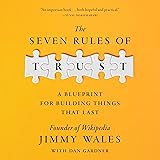Have you ever felt stuck, adrift, or like you’re simply going through the motions, yearning for a deeper sense of purpose and fulfillment? If so, the motivational insights shared in the video above resonate deeply with a universal desire: the journey of rebuilding yourself. It’s a powerful undertaking, often prompted by life’s unexpected challenges, that calls for honest self-reflection and a bold commitment to change. This path isn’t about becoming someone new, but rather rediscovering and strengthening the authentic person you are meant to be.
Acknowledging the Need for Change: The First Bold Step
The journey of rebuilding yourself begins with a vital, often uncomfortable, admission: change is necessary. This isn’t just about identifying what’s wrong; it’s about understanding the deeper roots of your dissatisfaction. Perhaps you feel unfulfilled in your career, strained in a relationship, or trapped in self-defeating thought patterns. Recognizing these feelings as valid signals for transformation is where true progress starts.
1. Embrace Self-Reflection
Self-awareness serves as the cornerstone of personal growth. To cultivate it, dedicate time to introspective practices. Research consistently indicates that individuals who regularly engage in self-reflection report higher levels of well-being and life satisfaction. Consider these approaches:
- Journaling: Regular journaling, even just 10-15 minutes daily, allows you to externalize thoughts and emotions, identifying patterns and gaining clarity. Prompts like “What am I avoiding?” or “What experiences truly bring me joy?” can be incredibly insightful.
- Mindful Meditation: Practices that cultivate present-moment awareness can help you observe your thoughts without judgment, fostering a deeper understanding of your inner landscape. Studies often highlight mindfulness’s role in reducing stress and increasing emotional regulation.
- Guided Conversations: Discussing your feelings and observations with a trusted friend, mentor, or therapist provides an external perspective that can illuminate blind spots and offer constructive feedback.
2. Cultivate Courage Over Comfort
Holding onto what’s familiar, even if it’s unfulfilling, often feels safer than stepping into the unknown. Data from various psychological studies suggest that fear of failure can be a significant barrier to personal transformation. However, true growth happens outside our comfort zones. It takes courage to challenge your perceptions, confront uncomfortable truths, and ask, “What if things could get better?” The willingness to face this discomfort is a strong indicator of your readiness for rebuilding yourself.
Navigating the Continuous Journey of Personal Transformation
Many people desire immediate results when embarking on a journey of change. However, rebuilding yourself is not a sprint; it’s a marathon. It’s a continuous process filled with lessons, setbacks, and triumphs, each contributing to your evolving identity.
1. Resilience: Learning from Setbacks
Challenges and setbacks are inevitable. Data from various goal-setting studies show that up to 70% of personal resolutions falter, often due to a lack of strategies for handling obstacles. Instead of viewing setbacks as failures, see them as invaluable learning opportunities. Each obstacle provides insight into your strengths, weaknesses, and areas where your approach might need adjustment. For example, if you struggle with consistent exercise, a setback might reveal that your chosen workout time isn’t sustainable, prompting you to adjust your schedule rather than abandon your goal entirely. This iterative process builds resilience, an essential quality for any profound transformation journey.
2. Action Through Achievable Goals
Recognizing the need for change is only the first spark; progress ignites through consistent action. Experts agree that setting Small, Measurable, Achievable, Relevant, and Time-bound (SMART) goals significantly increases the likelihood of success. Start with small, manageable steps that align with your desired improvements. For instance, if you want to improve your well-being, instead of “get fit,” aim for “walk 30 minutes, three times a week for the next month.” Celebrate these small victories, as they build momentum and reinforce your commitment to becoming the person you aspire to be.
3. Practice Self-Compassion
The path of rebuilding yourself is rarely linear. Some days you will feel unstoppable, while others might feel like a struggle. Research on self-compassion shows that individuals who treat themselves with kindness during difficult times are more motivated to try again after a setback. Instead of criticizing yourself for perceived failures, acknowledge your effort and progress, no matter how incremental. Treat yourself with the same understanding and patience you would offer a dear friend.
The Power of Your Environment and Support System
Your surroundings profoundly influence your personal growth. Just as a plant needs fertile soil and sunlight, you need a supportive environment to flourish during your journey of rebuilding yourself.
1. Evaluating Relationships
Take an honest look at your relationships. Do they uplift and energize you, or do they drain your spirit? Recognizing and, if necessary, releasing toxic relationships is a crucial, albeit difficult, part of self-reconstruction. Toxic relationships can manifest in many forms:
- Constant Criticism: Partners or friends who frequently belittle your efforts or dreams.
- Lack of Support: Individuals who dismiss your goals or are absent during your struggles.
- Emotional Drainage: Relationships that leave you feeling exhausted, anxious, or perpetually negative.
- Manipulation: Dynamics where your feelings are invalidated, or you’re made to feel guilty for pursuing your own needs.
While letting go can be painful, creating space allows positive connections to enter your life. Studies on social support networks demonstrate that strong, positive relationships significantly correlate with improved mental health and greater success in achieving personal goals.
2. Building a Positive Network
Surround yourself with individuals who inspire your growth, champion your dreams, and hold you accountable. Seek out:
- Mentors: People who have achieved what you aspire to and can offer guidance.
- Accountability Partners: Friends or peers with whom you share your goals and check in regularly.
- Supportive Communities: Groups, online or offline, that share your interests and offer encouragement without judgment.
Your growth is your responsibility, but a strong support system can provide the necessary encouragement and perspective to navigate the inevitable ups and downs.
Crafting Your Vision for a Transformed Future
A clear vision acts as your compass, guiding your actions and reminding you of your overarching purpose. It transforms vague aspirations into a realistic framework for the life you envision.
1. Envisioning Your Desires
To start creating your vision, take intentional time to reflect on your true desires. What does your ideal life look like across all domains: personal well-being, career, relationships, and spiritual fulfillment? Consider what truly brings you joy, not what external pressures dictate. Research on goal achievement highlights that visions rooted in intrinsic motivation (from within) are far more sustainable than those driven by extrinsic factors (external rewards).
2. Articulating Your Vision
Put your vision into vivid, detailed language. Write it down, describing your ideal life as if it’s already happening. Where do you live? What work do you do? Who are the people you spend your time with? The more specific your description, the more powerful it becomes as a motivational tool. This written vision serves as a constant reminder, keeping you focused during moments of doubt.
3. Aligning with Core Values
Ensure your vision aligns with your core values—the fundamental beliefs that guide your life. Identify what truly matters to you, whether it’s integrity, creativity, family, contribution, or personal growth. When your vision is built upon these values, it becomes deeply meaningful and fuels your determination. Studies on values-based living demonstrate that individuals whose actions align with their core values experience greater satisfaction and resilience.
4. Utilizing a Vision Board
For a visual anchor, create a vision board. Collect images, quotes, and symbols that resonate with your aspirations. Place this board somewhere you’ll see it daily, such as your workspace or bedroom. Engaging with your vision board regularly helps to embed your goals into your subconscious, reinforcing your commitment and keeping your dreams at the forefront of your mind.
Practical Tools for Sustained Growth and Self-Compassion
Beyond vision and courage, practical tools provide the scaffolding for sustainable growth and ensure you approach your journey of rebuilding yourself with kindness.
1. Advanced Self-Reflection Techniques
Deepen your self-awareness with structured reflection:
- Strengths-Based Reflection: Instead of focusing solely on weaknesses, reflect on your accomplishments and the strengths you utilized. Research in positive psychology suggests that focusing on strengths can boost confidence and motivation.
- Emotional Audit: Regularly check in with your emotional state. What triggers joy? What causes stress? Understanding your emotional landscape is critical for managing your reactions and making choices that align with your well-being.
2. The Power of Gratitude
Practicing gratitude shifts your mindset from what’s lacking to what’s abundant. Studies have shown that a regular gratitude practice can significantly improve mood, reduce stress, and even enhance physical health. Incorporate gratitude into your daily routine:
- Gratitude Journal: List 3-5 things you are grateful for each day.
- Gratitude Meditation: Focus on feelings of thankfulness during meditation.
- Expressing Thanks: Make it a point to genuinely thank others in your life.
This positive perspective fosters resilience and keeps you grounded as you navigate the inevitable ups and downs of transformation.
3. Embracing Discomfort as a Growth Indicator
The journey of rebuilding yourself often challenges your sense of familiarity. You will likely face fear, uncertainty, and self-doubt. Instead of avoiding these feelings, confront them. See discomfort not as a warning sign to stop, but as a signal of growth. Each time you push beyond your comfort zone, you expand your capabilities and move closer to your desired self. Cognitive behavioral therapy principles emphasize that confronting fears, rather than avoiding them, leads to reduction in anxiety over time.
4. Cultivating Self-Compassion in Action
Self-compassion goes beyond just “being nice to yourself.” It’s about actively:
- Mindful Self-Kindness: Recognizing when you’re struggling and responding with warmth and understanding, rather than harsh self-criticism.
- Common Humanity: Understanding that suffering and personal inadequacy are part of the shared human experience, reducing feelings of isolation.
- Balanced Self-Awareness: Observing your painful thoughts and emotions without getting overwhelmed by them.
Treating yourself with patience and kindness during tough times reinforces your commitment to growth and well-being, ensuring that the process of rebuilding yourself is sustainable and genuinely empowering.
The journey of rebuilding yourself is an empowering odyssey of growth and fulfillment. It demands patience, unwavering resilience, and a profound commitment to self-reflection and self-discovery. By recognizing that meaningful change unfolds over time, you can navigate this journey with intentionality and grace. Celebrate every small step forward, embrace discomfort as an essential facet of growth, consistently reflect on your progress, and set clear, value-aligned goals. Seek robust support, remain adaptable to life’s inevitable shifts, practice profound self-compassion, and take immense pride in the unique unfolding of your personal path. Each deliberate choice you make brings you closer to your authentic self, confirming that the transformation you seek is not only within your grasp but is actively becoming your reality.








